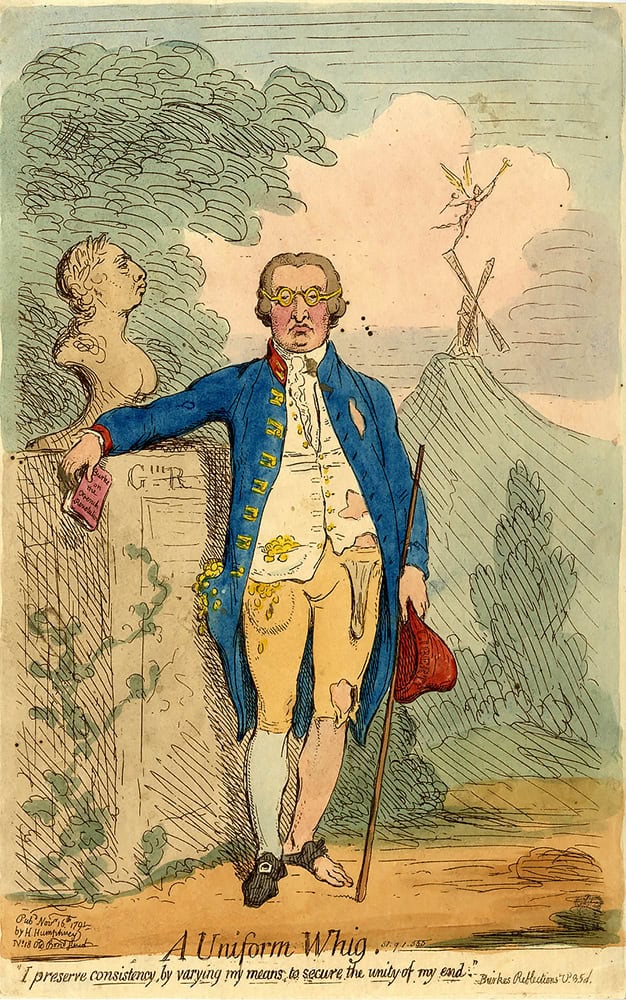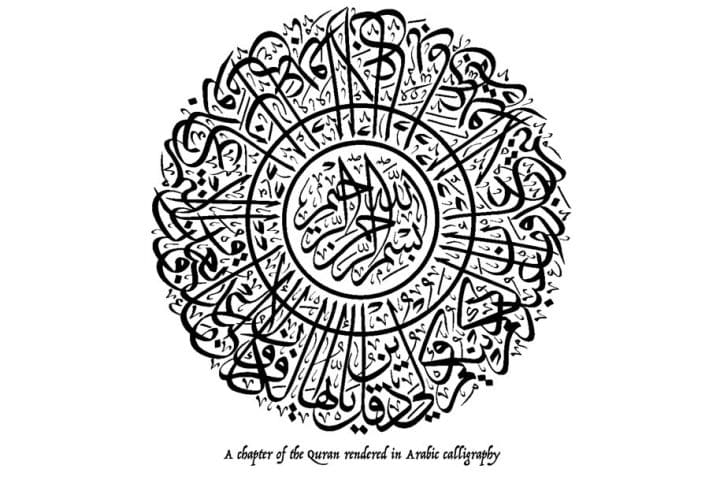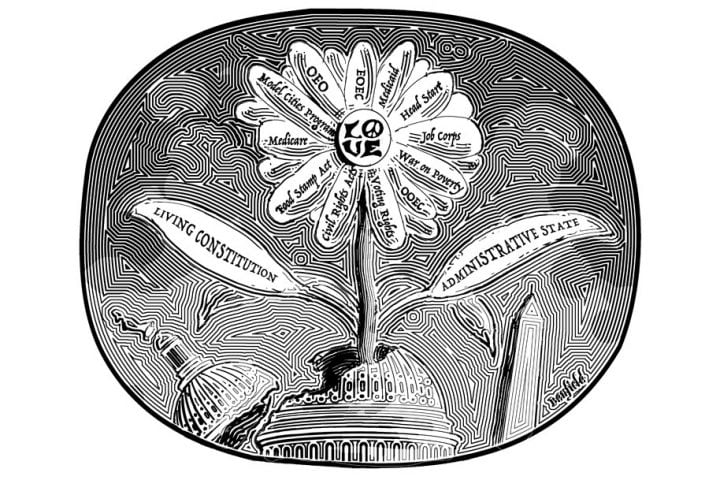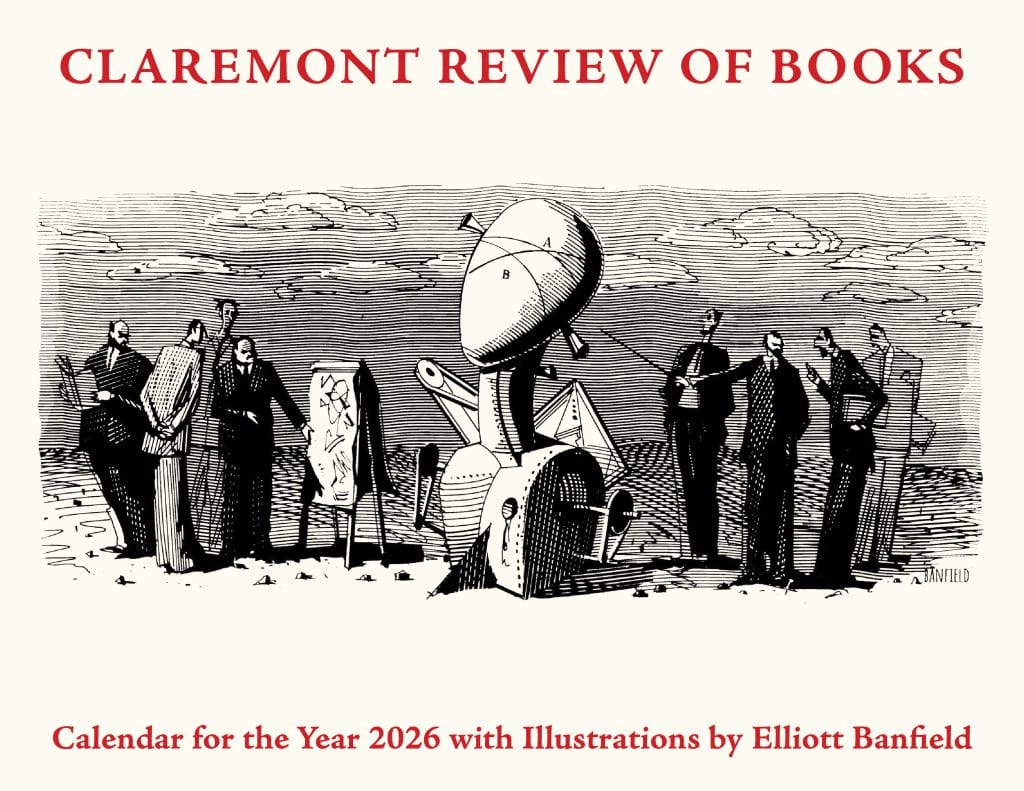Books Reviewed
from Retaliation: A Poem (1774)
Here lies our good Edmund, whose genius was such,
We scarcely can praise it, or blame it too much;
Who, born for the universe, narrow’d his mind,
And to party gave up what was meant for mankind:
Tho’ fraught with all learning, yet straining his throat,
To persuade Tommy Townshend to lend him a vote;
Who, too deep for his hearers, still went on refining,
And thought of convincing, while they thought of dining;
Tho’ equal to all things, for all things unfit,
Too nice for a statesman, too proud for a wit;
For a patriot, too cool; for a drudge, disobedient;
And too fond of the right, to pursue the expedient.
In short, ’twas his fate, unemploy’d, or in place, sir,
To eat mutton cold, and cut blocks with a razor.—Oliver Goldsmith
Edmund Burke’s politics continue to pose a puzzle to the modern reader. Vastly learned, gifted with the arts of persuasive speech, almost fanatically devoted to unearthing the underlying political, historic, and economic data that encompassed and distinguished a particular controversy of the day, Burke nonetheless repeatedly failed to persuade his fellow legislators to follow his recommendations. And, to add insult to injury, he was frequently viewed as being inconsistent in applying his vaunted political principles to the array of issues and policies he addressed over a long career. This great controversialist appears to be the very model of an unhappy warrior.
It does not take much acquaintance with Burke’s career and thought to know that he took strikingly different stances toward the revolutions in America and France that roiled his 18th-century world. His sympathy with the aggrieved American colonists led him to conduct a prolonged if futile campaign to bring moderation and generosity of spirit into imperial policy. His antipathy toward Jacobin principles elicited an impassioned, no-holds-barred campaign to destroy every vestige of that armed proselytizing movement, be it in the mind or on the battlefield. And yet the French revolutionists of 1789 saw themselves as the natural successors to the Americans of 1776. In each case the banners of liberty, equal rights, and enlightenment had been raised. In each case a new and better world was being envisioned and prepared to be enacted. And in each case Burke drew on his deep reservoirs of sympathy and ferocity to make sense of a world in flux. Here was a contrast too glaring to be overlooked. Indeed, both in his own time and ever since, he has been dogged with charges of inconsistency or worse; yet in his own mind, it was precisely for his consistency that he deserved to be respected.
This puzzlement is, in a way, an old story and would not in itself suggest the need for a fresh assessment of the man’s thoughts and acts. It is well to recall that the annotated Edmund Burke, a Bibliography of Secondary Studies to 1982 filled a volume of over 350 pages. In a gracious foreword to that book contributed by a distinguished bibliographer of Burke’s own writings, William B. Todd pronounced: “So it is that after long deprivation scholars now, in the fullness of time, are privileged to know precisely what Burke wrote, what he published, and now, through this splendid bibliography, what has been said about him. In years past scholars have had to endure much less than this; in years to come we could hardly ask for more.” But truth be told, now—almost four decades later—we do dare to ask for more. Scholars and others have not been sitting on their hands. It is highly probable that were an annotated bibliography produced today of secondary studies on Burke published since 1982, the volume would be comparably hefty.
This is not to suggest that there was no gold in that earlier literature, or to deny that there is plenty of dross in later studies. But latter-day scholars have been digging deeper into more archives and broadening the context in which to consider Burke’s political positions. (Suffice it to say that the subject index of the earlier bibliography has no entries for “Slavery” or “Slave Trade.”) His life has been reconstructed and retold in astonishing detail. No less impressive are new studies focusing on his intellectual life. Finally, continuing efforts to recover the complex story of how Britons came to be a nation and a self-conscious empire are casting new light on Burke’s preoccupation with those themes as both thinker and political actor. The cumulative effect of all this is to say that materials are now at hand that would allow for a more richly nuanced understanding of the man, his career, and his times. With that expectation or hope, we are tempted once again to try to make sense of a life marked by brilliance and failure.
Prejudice and Pride
The barrier he could not remove that might enable others to follow him was the very element that gave his political life its distinctive quality. Edmund Burke was the first of modern politicians to make a public case for the necessity of party, which he defined as an honorable attachment to a cause shared by men of common views. That attachment, in turn, grew out of his passions and unabashedly appealed to the passions of others. His was a “moral imagination”—to use his and biographer David Bromwich’s apt phrase—and it was through that imagination that Burke refracted all the information he so laboriously assembled. This is true of all the great and not-so-great issues on which he took a stand and to which he made distinctive contributions: America, revolutionary France, Ireland, India, religious toleration, and slavery. From that perspective, consistency (if there is indeed any) has to be sought in the moral judgment that informs his practical, political conclusions.
At all points, Burke’s substance and manner were informed by that moral imagination. It never left him, and he persisted in viewing men, measures, and events through that wide-angle lens. Details abound in his analyses; circumstances matter, and matter greatly. And yet all are arrayed and judged under an overarching law of our common humanity, one that encompasses men and women of all lands, colors, and conditions.
Here many of his contemporaries faltered. Those whom Burke was trying to persuade were often of a different cast of mind. His eloquence could not arouse their empathy sufficiently to overcome their all-too-easy tendency to disparage whoever and whatever was remote and different. To his audience, Creoles in British America were viewed less as kith and kin of those they left behind in Great Britain than as English-speaking Tartars, little better than the savages they were scalping. Irishmen were primitives of another sort, and Irish Catholics even more dangerous and contemptible. The Hindus, high and low, who endured the rapacity of the East India Company were too alien to grasp or even imagine. They lay beyond the reach of empathy. Europe’s lust for treasure and sugar had hardened the hearts and deadened the moral sensibilities of those who propelled and managed overseas empires. The miseries of the mines at Potosí and the plantations in the Antilles were not much pondered. For such individuals Burke was speaking to the wind. His was a politics to which they could not rise.
Burke’s politics look forward to a world not purged of its imperfections or even of its absurdities, but understanding of them. It would use, manage, mitigate, balance, tolerate, even in some sense cherish those inanities and quirks that drive rational-choice theorists up the wall. Far from envisioning a squeaky-clean world furnished in Swedish Moderne, sanitized, rationalized, stripped as much as possible of wasted motion and bad surprises, Burke’s politics emulate that messy patch he calls “nature.” He would balance inconveniences, orchestrate the reciprocal struggle of discordant powers and conflicting interests. He would not mistake the faceless impersonality of bureaucratic management for equal treatment. Nor would he regard the easy promise of some better tomorrow sometime soon as an acceptable trade-off for the heavy-handed patronage of today’s Big Brother.
Burke’s political thought pays constant attention to indicators of the tone of a society. He is much more concerned with the moral conditions that impinge on an individual’s sense of self-respect than he is with the usual economic indicators. This makes him more complacent in the face of human misery than we like. He can accept and even welcome various kinds of inequality in society at large for many of the same reasons that he can accept and welcome such inequalities within a family. For Burke, both the little platoon and the larger body find their meaning and being in a network of feelings and beliefs that at their best quite overwhelm their material foundations. As far as he is concerned, a science of politics that cannot see and accept that larger sense of meaning is a science and a politics unfit for human consumption.
Burke hated cruelty. Even leaving his reasons aside, temperament alone would suffice to account for his deep aversion and commitment. He detected injustice with a gaze that was steady, forthright, and fierce. Far from shunning theatrical displays, Burke reveled in them. The purple prose depicting Marie Antoinette’s humiliation (“But the age of chivalry is gone.—That of sophisters, œconomists, and calculators, has succeeded; and the glory of Europe is extinguished for ever…”), the unrestrained catalogue of Warren Hastings’s depredations in Bengal, were delivered without embarrassment or a sense of having overstepped. No, injustice must be shown in its true ugly colors; nothing less would do. But the old question recurs. Women might faint and worldly men blanch at Burke’s impassioned accounts, but in the end the vote largely ran against his motions and proposals. Why did this master of rhetoric and eloquence fail to win over his discerning audience?
A clue may lie in the prominence he assigns to himself in his various productions. Burke does not tarry for long in the wings. Instead he draws attention to qualities of mind and experience that should lead others to credit him with knowledge and a virtuous character. In guiding others, such a man would not knowingly mislead. Trusting the ethos of the speaker or author is a prerequisite for persuasion; in its absence, tepid applause alone will bear no fruit. But where Burke’s personal motives might be clear of any stain, the unruliness of his temperament could always be impugned. Hence in his own lifetime, he could point to precious little that had resulted from his labors.
He was congenitally incapable of being a detached observer. This is not to deny that he was assiduous in immersing himself in the study of any subject or issue or situation in which he took an interest. Not for him the casual, indolent self-confidence of the men he had to persuade, the landed worthies whom Benjamin Disraeli would later characterize as splendid asses. Burke was nothing if not thorough. We find silent confirmation of that fact in those members who took the cue to leave the House of Commons for a leisurely supper as soon as Burke rose to speak to the matter under debate. But all that sobriety, assiduity, and thoroughness of his coexisted in a man who cared. His loyalties, attachments, sympathies, and, yes, hatreds were familial, even tribal. Once engaged, they could not be neutral or indifferent.
Too Many Words
Although he was a close student of Aristotle, Cicero, and Quintilian, and especially of their writings on rhetoric, Burke has hardly made it easy to cross his threshold and enter into his moral and political universe. For one thing, there are simply too many words. (Think of Thrasymachus in Plato’s Republic being compared to a bath man who dumps a great shower of words into our ears all at once.) You the reader—or originally, the auditor—have to be persuaded, but it remains a problem whether forensic overkill is most effective in opening the mind and heart of a legislative assembly, or a court of impeachment, or a chief minister in a parliamentary government. A steady stream of examples, invective, pathos, and statistics, all adorned with his angular, idiomatic, often baroque and Latinate prose, may not harden hearts, but it risks inducing impatience and ultimately indifference. (Reflections on the Revolution in France begins as a letter with “Dear Sir,” and ends 300 pages later; it has neither chapters nor section breaks. Two of Burke’s major speeches in the impeachment trial of Warren Hastings occupied four days each; his epic final speech in reply to the defense consumed nine days.) For all the fireworks, the abundance of allusions challenging the audience to recognize them as they come tumbling forth, the end result may be a feeling that this is altogether too much. Even in the golden age of parliamentary oratory—the age of William Pitt the Elder and the Younger, Richard Sheridan, and Charles James Fox—Burke might appear a man out of control, a man drunk with his own energy and artfulness.
Nor is this the only impediment to meeting Burke on his ground or to his meeting us on ours. The words themselves may seem to carry a hectoring undertone. We—his readers or his presumed listeners in the House of Commons—are chastised again and again for the lazy, thoughtless way in which we speak of “liberty,” “equality,” and “rights” without ever stopping to clarify what we mean by them. Yet for Burke, even this confusion of mind is not the worst of it. For by our indifference to precision we open ourselves to any peddler of counterfeit goods hawking the latest modern improved notions. It is hard to cotton to someone who insists we don’t know what we yearn for.
And as if this were not enough of a barrier to mutual understanding and, ultimately, persuasion, Burke makes an additional extraordinary demand upon himself and his audience. Not only must your confidence in your generally accepted opinions be shaken; not only must you be willing to hear him out as he proposes a different way of framing and addressing the problem. Finally—and here we come to the boldest and most farfetched part of his undertaking—Burke’s proposed new way of looking at and making sense of history has itself to be made to appear as anything but new, but rather old-fashioned, even self-evident. It is this last part of his self-appointed task that arguably drives him to adopt the idiosyncratic and irritating devices he uses in presenting his case. Without having first unsettled the beliefs that frame your customary view of the world, Burke cannot achieve his larger aim. He would have you adopt a stance deeply at odds with the modern enlightened and liberal way of thinking in which he was an uneasy participant, a frequent naysayer, and (no surprise) a proponent of doomed causes.
Yes, that glaring fact must not be lost sight of. In most if not all the causes in which Burke invested so heavily—ending the war with America, expanding civil liberties in England, securing religious toleration, loosening trade restrictions on Ireland, reforming the empire in India, opposing the revolution in France—he failed to convince his 18th-century contemporaries to follow with a willing heart. It was only decades later that the public felt the bite of his arguments. His now-celebrated prescience and prudence are a latter-day judgment. For all his elaborate research and masterly arraying of evidence in his major writings and his greatest orations, Burke could not produce a decisive proof that his was the policy to follow. He could offer only a more or less persuasive case, a case most of his audience found less than persuasive notwithstanding its erudition and brilliance. Why should that have been so?
Like someone playing a war game by himself, Burke disposes the opposing forces according to his desires. Here on one side (not only in France obviously, but in Britain as well) are science, philosophy, metaphysics, and geometry with all their corrosive and nastily reductionist hazards. Ranged against them are prescription, religion, custom, sentiment, family, country—a congeries of memories, dreams, aspirations, and feelings of debt, gratitude, and obligation. Just as there is no system of advanced accounting that can reduce this tangle to some clear, tidy financial statement, so is there no science that can justify our untroubled and unqualified enactment of its (so to speak) authoritative findings.
Again, Burke insists on our seeing that the supposed clarity and realism of the modern scientific analysis of human affairs may encourage a heedless, reckless, headstrong, unjustifiable confidence in human power and sufficiency. We are tempted to go for broke, and when the effort turns out to be disappointing, when difficulties and complications somehow fail to melt away according to plan, we are tempted to ignore or evade that embarrassment and march blithely on to our next encounter. Upward and onward. The lazy restlessness for which Burke faults the French Revolutionaries is emblematic of the unwarranted self-assurance of modern thinking; it is incorrigible in its optimism.
Between Principle and Practice
Burke counters or contrasts this way of thinking with what he, drawing on Aristotle, calls prudence. I would hardly deny that in a number of respects Burke’s reasoning adopts and displays significant features of modern thinking: the language of rights, economics, and history, for example, is not alien to him. But his political science, like much of premodern thinking, is modest in its claims, cautious in its proposals, and measured in its confrontations with human complexity, variety, and obtuseness. His stance toward the slave trade and slavery more generally exemplifies this perfectly. Far ahead of most other parliamentarians of his time, Burke publicly denounced the execrable traffic in human beings that made Bristol, which he had once represented, a prosperous trading city. Here was an outrage crying for instant and total eradication. But more was present to Burke’s mind than the inherent immorality of this wretched business.
At this point we must pause and try to make sense of a long paper trail filled with traces of his involvement, a trail marked by ambiguity, hesitancy, and equivocations. In Edmund Burke and the British Empire in the West Indies: Wealth, Power, and Slavery (2019), a deep descent into 18th-century archival materials (governmental, corporate, and personal), historian P.J. Marshall has brought to light Burke’s solicitude for West Indian interests that depended on, and profited from, slavery and the trade that sustained it. The tension is palpable and unmistakable. To be sure, Burke was adamant in insisting that this brutal form of coerced labor is a crime against humanity. He thought the same of the trade that in a single decade (1766–1775) had brought almost a quarter million bodies to the islands’ plantations to replace those whose lives had been consumed by toil and disease. And yet, as a man of business, adept and well-practiced in commercial affairs, and even more so as a legislator, he could sometimes take a different stance. In promoting measures that facilitated the commerce in slaves, Burke proceeded as though these people were merely articles of merchandise, private property whose treatment was no special concern of government at all.
If there is a consistency to be found here between principle and practice, it may lie in a reassessment of the depth of Burke’s involvement in this moral cause. Abolition was not the all-encompassing objective for him that it was for Christian activists and Quaker petitioners. He viewed the status and presence of slavery in the larger context of the strength, security, and prosperity of the British empire as a whole. From that vantage point, Britain’s possessions in the Caribbean were a major source of the country’s ability to project power worldwide. The enormous wealth generated by the transatlantic traffic in sugar, cotton, and slaves sustained a navy that could hold the French, Dutch, Spanish, and all others at bay. The hopeful wish in James Thomson’s 1740 hymn—“Rule, Britannia! rule the waves”—could become a proud assertion under unspoken, but well understood conditions: “Britons never shall be slaves”—but (sotto voce) at the price that others will be.
Burke was exquisitely mindful of the tangle of conflicting interests that could neither be ignored nor satisfactorily resolved. The present system left in the hands of masters and overseers both voluntary manumission and even mitigations of severities. That meant such outcomes would be unlikely, even rare. In an unpublished but privately circulated “Sketch of a Negro Code” (1780), Burke laid out a plan that proposed a way toward gradual emancipation and, going beyond that, prescribed the necessary steps that would actually make it happen. In this case he could not put his faith in the operations of a free market. The goal was not only to make an incurable evil as small as possible, but to accomplish the formidable task of forming men to be prepared for freedom and ready to become good citizens.
Counting on the good will and vigorous support of individual slaveholders or the colonial legislatures in which they predominated would be arrant trifling. Nothing less than a vast supervisory bureaucracy, appointed by and accountable to central authorities in London, would be needed to put this connected system into effect. At every stage—from the factors or agents going into the interior of Africa assembling the bodies to be brought to market, to the coastal markets, to the vessels that would carry their miserable cargo, to the individual plantations that were their ultimate destination—everything was to be licensed, inspected, registered, and certified to be in conformity with prescribed standards of safety and health. Clergy, schoolmasters, teachers of crafts, and so-called “Protectors of Negroes” would act for a time as appointed guardians of a people so diminished by their enslavement that, unassisted, they could hardly avail themselves of the remedies provided by the law. One is tempted to wonder whether this text of 9,000 words and 74 sections each ending with a proposed enactment or administrative rule is a utopian fantasy or, rather, a barely camouflaged effort to make the kidnapping and enslavement of Africans so expensive as to encourage an end to the traffic and a new basis for labor in Britain’s colonies.
His Eternal Credit
Burke could not foresee the extent to which triumphs of chemical engineering (sulfur mustard, Zyklon B, and napalm), and the ruthless corruption of language in 20th-century despotisms would make mass murder on an unprecedented scale feasible, relatively efficient, and acceptable. One could engage in such enormities with a clear conscience by conceiving them as acts of purification, sanitation, and extermination of vermin, pests, and other noxious “things.” To Burke’s eternal credit, he recognized the manmade road to hell in its early stages, called it by its name, and fought it with all his might. He unfailingly put his finger on its unsavory beginnings. Referring to the Jacobin resort to euphemisms, he wrote: “The whole compass of the language is tried to find synonimes [sic] and circumlocutions for massacre and murder. Things are never called by their common names. Massacre is sometimes agitation, sometimes effervescence, sometimes excess; sometimes too continued an exercise of a revolutionary power” (Preface to the Address of M. Brissot to his Constituents, 1794).
The effective reduction of human beings to lesser breeds without the law left the way open for oppressions of every kind: Homosexuals locked in stocks where irate neighbors might stone them to death. Jewish merchants in the Caribbean expropriated and exiled on the shortest notice by a naval commander with no semblance of legal process. Minorities of various stripes, harried for no better reason than their mere existence. Insolvent debtors presumed to be guilty of fraud and imprisoned indefinitely at the discretion of their creditors acting as both judge and a party. And most notably, the slaves reduced to the status of “degraded men,” simply because other men had the power to degrade them. Against all these outrages Edmund Burke raised his voice. Perhaps none of his other achievements do him as much honor as his “failures.” At the end of his life, a broken and despondent lion, he seems to have understood and accepted that judgment.







